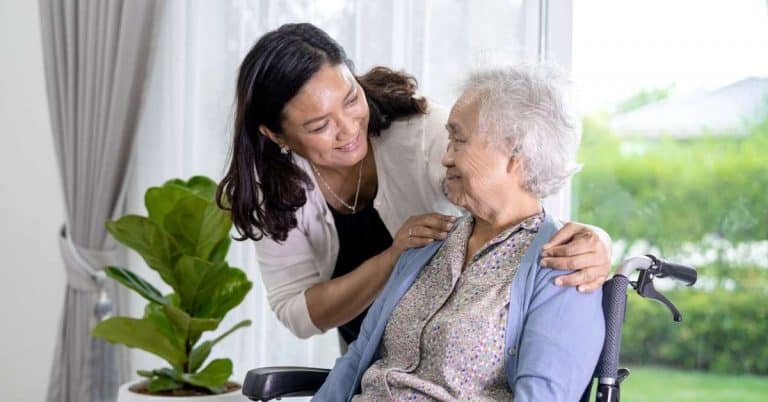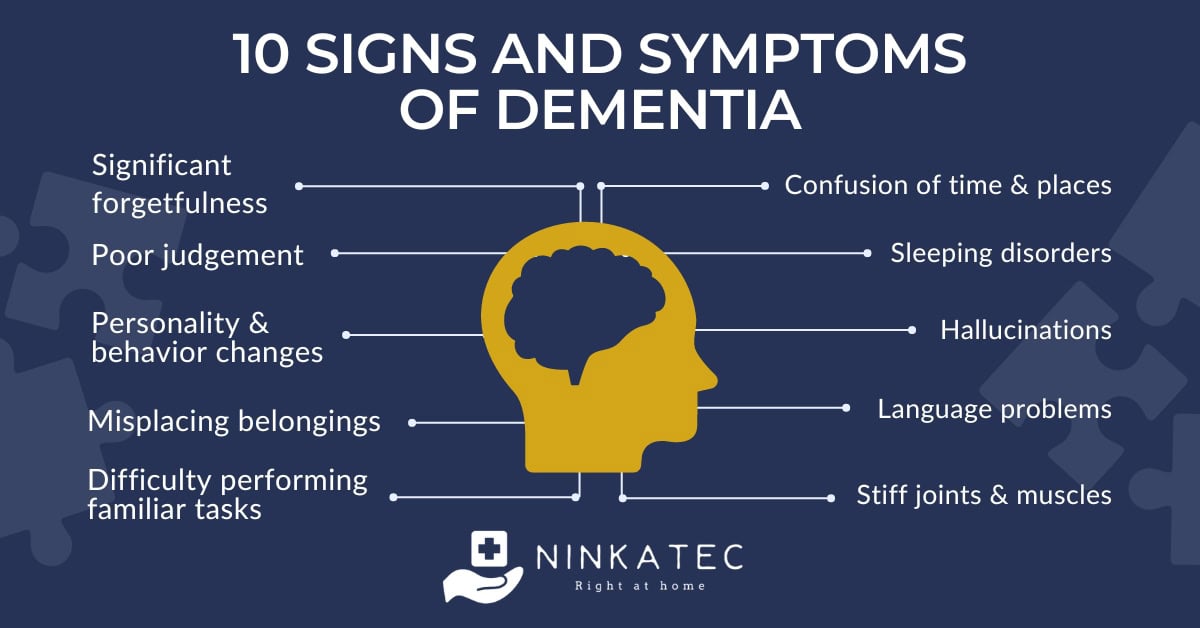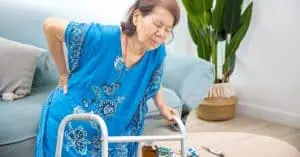When memory fades and confusion sets in, loved ones often find themselves grappling with worries and questions. To shed light on this debilitating disease, we turn to A/P Dr. Aaron Ang - Senior Consultant and Former Head of Department of Psychological Medicine, Tan Tock Seng Hospital. In this illuminating Q&A, Dr. Ang tackles 12 pressing questions that many people with loved ones affected by dementia have asked us.
From understanding how dementia develops to distinguishing it from normal forgetfulness, exploring diagnostic processes, current and future treatments, prevention strategies, and more, this article aims to provide clarity and guidance for those in the early stage of navigating dementia.
Table of Contents
1. How does dementia occur?
Dementia is the progressive loss of cognitive functions such as remembering and thinking. It occurs when there is damage to or loss of brain cells and their connections in the brain. These changes may lead to psychological and behavioural changes which interfere with a person’s daily activities. Although memory problems are most common, dementia can cause other symptoms depending on the brain area that is affected by the damage.
2. Are there different types of dementia? Is dementia the same as Alzheimer’s disease?
There are different types of dementia which are related to the different causes of damage or loss of the nerve cells in the brain. The commonest types of dementia include Alzheimer’s disease, vascular dementia, and Lewy body dementia.
- Alzheimer’s disease, the most common cause of dementia among the above three types, leads to the accumulation of breakdown products of the brain cells. These breakdown products are seen as amyloid plaques and neurofibrillary tangles under a microscope. Plaques are clumps of beta amyloid, and fibrillary tangles of tau protein. Together, they are thought to damage healthy nerve cells. Patients with Alzheimer’s disease progressively lose their memory and thinking skills, and eventually their ability to carry out simple tasks.
- In vascular dementia, brain damage happens as a result of loss of blood vessels that supply blood to the brain, often as a result of a stroke. Some of these strokes are silent and patients do not experience obvious weakness or numbness post-stroke. However, there will still be damages to the brain. Common symptoms of vascular dementia include issues with problem solving, focus, organisation and slowed thinking. Patients may also have low mood and depression.
- Lewy body dementia is the type of dementia related to Parkinson’s disease. In this case, the buildup of broken-down proteins forms abnormal clumps in the brain called Lewy bodies. Apart from the symptoms of Parkinson’s disease, patients often experience visual hallucinations and problems with focus and attention.
3. Is dementia inevitable for the elderly?
Although the risk of dementia increases with aging, especially after 65 years, it is important to understand that dementia is not part of normal aging. Also, dementia can occur in younger people, though less common. This is known as young onset dementia.
4. So dementia is not inevitable. Is it preventable?
There is no sure way to prevent dementia. What we can do is to manage the risk factors of dementia, by maintaining overall health through a healthy diet and staying physically active. Engaging in social interaction and physical activity in addition to mental activities such as reading, solving puzzles and memory training may delay the onset of dementia and reduce dementia symptoms.
Quitting smoking can improve your health, reduce your risk of dementia and also cardiovascular conditions. If you have pre-existing health conditions such as diabetes, sleep apnea, depression and anxiety, seek a doctor for treatment. For example, Type 2 diabetes has been linked to Alzheimer's disease.
5. What does dementia affect? Does dementia cause death?
While dementia is commonly associated with memory loss, its impact extends far beyond just memory. It affects various cognitive abilities, including reasoning, problem-solving, and decision-making. Additionally, dementia can impair communication skills and the ability to perform everyday tasks, significantly affecting a person's overall functioning and quality of life.
Dementia itself does not cause death. However, in the late stage of this illness, the person may pass away from common complications like lung or urinary tract infections. It is important to look out for these risks when caring for dementia patients, especially when done at home.
6. How do we know if we or a family member has dementia and not just the common age-related forgetfulness?
It is easy to miss early symptoms of dementia and therefore miss the chance for early intervention. While some of the symptoms are easier to spot, such as delusion, visual hallucinations, anxiety or depression, they are not always present in early stages. More common symptoms of dementia such as difficulties with communication, reasoning, problem solving, coordination or handling complex tasks at the mild dementia stage can be mistaken for problems of the aged.
The subtle difference to look out for is that a person with dementia often has trouble recalling recent events but can still remember things from a longer past. For example, an elderly might not remember if they have taken a meal, where he put his keys and wallets, or ask the same question repeatedly, but can tell stories from childhood. Symptoms worsening over time is another sign of pathological forgetfulness that may relate to dementia. Night wandering and sleeplessness are also quite common.
If you or your family member are experiencing memory issues, see a doctor as soon as possible for early assessment. Dementia symptoms may also be caused by other treatable medical conditions, therefore it is important to determine the underlying cause.
7. How is dementia diagnosed? Where can we get tested for dementia in Singapore?
There is no single test for dementia. Dementia needs to be diagnosed by specialists through a combination of testing and examination, including:
- Medical history review together with a physical examination
- Understanding the patterns of loss of skills and functions
- Cognitive and neuropsychological tests
- Neurological evaluation
- Brain scans
- Laboratory evaluation
- Psychiatric evaluation
In Singapore, you can go to Khoo Tech Puat Hospital, Institute of Mental Health, Changi General Hospital, Tan Tock Seng Hospital, National University Hospital or Singapore General Hospital to test for dementia. You can also get screened at community medical clinics first before going for intensive tests at hospitals. But get screened only if there are cognitive or behavioral dementia symptoms. Dementia screening should not be done for everyone.
8. What dementia treatments are available today?
Treatment depends on the identified cause. For dementia patients in mild to moderate stages, doctors can use a combination of medications and therapies to manage the symptoms and behavioural problems, slowing down deterioration of the disease and promoting memory and recall of events.
In some cases where dementia causes are treatable such as infections, hormonal problems or just nutritional deficiencies, doctors will treat these reversible causes first before tackling the irreversible ones. Unfortunately, progressive types of dementias cannot be cured.
Learn more about diagnosis and treatment of Alzheimer's disease and dementia from another talk by Dr Aaron Ang published on our blog.
9. What should a patient and family expect when diagnosed with dementia?
When patients are first diagnosed, they can experience feelings of anger, fear, and anxiety. The first thing families can do is to provide emotional support to help their loved ones overcome this stage. Subsequently, beware that certain lifestyle changes are due to come with dementia. People with dementia need a hard-to-miss daily routine and lots of safety measures at home. As the disease progresses, they would need even more help, supervision as well as empathy.
In terms of long-term treatment, doctors often schedule periodic follow-up visits to monitor medicines and the patient’s level of brain functioning. Unless there is an emergency situation, the rest of the care happens at the patient’s home or place of residence. Dementia caregivers therefore play a very important role in caring for dementia patients. The pressure and stress on them can get overwhelming. It is advisable for caregivers and families to get the necessary training and support from community organisations, professional services and care providers, such as Alzheimer’s Disease Association (ADA tel 63770700).
Since the disease often progresses slowly, dementia diagnosis would give the patient and family an opportunity to plan and prepare for the slow and gradual decline of the person's cognitive function. The doctor would be able to help guide the patient and family with the medical as well as the psychosocial aspects of the illness. This would also include negotiating testamentary issues, mental capacity and appointing a donee or deputy, for example Lasting Power of Attorney.
10. What do you think is the best dementia care option for the elderly in Singapore?
The best option is to care for the person at home, because persons with dementia do best in a familiar environment. Depending on the level and severity of dementia, they can attend day activities at a daycare center. As the illness progresses, there are options for specialised caregivers, dementia day care centres, and as a last resort, nursing homes.
11. What future treatment can we expect for people with dementia? What role does technology play in diagnosing, treating and caring for dementia patients in the future?
By the time the symptoms of dementia manifest, there is already significant damage to the brain. As such, I believe future treatments in dementia would have a 2-pronged approach. Firstly, tests and investigations would be made available to predict who will develop dementia. Secondly, such high-risk persons would be started early on medications to arrest or even reverse the damage to the brain cells.
Until then, technology to monitor the dementia sufferers’ activities, health status, sleep and waking pattern, mood and behaviors may be crucial for appropriate prescription of medication and other therapies. In advanced stages, there are solutions available for 24/7 dementia home monitoring, helping family and caregivers. I believe these solutions are going to get better with medical and technological advances.
12. What would be your advice for families with a dementia-affected member?
A patient's daughter once shared with me a profound perspective: caring for her mother with dementia wasn't just a duty, but a privilege. It was her chance to repay years of nurturing with love and dedication. Her words reminded all of us that within the challenges of caregiving lies a beautiful opportunity for gratitude and connection.
Thank you for your time and valuable advice Dr. Aaron Ang.
Caring for a Loved One with Dementia in Singapore
As Dr. Aaron Ang has highlighted, dementia is a complex condition that affects not just the individual, but entire families and communities. With one in ten people aged 60 and above affected, and half of those aged 85 and above, the impact is far-reaching. Beyond the medical aspects, dementia exacts a significant financial and emotional toll.
Studies show that dementia care costs an average of S$40,000 per patient annually, amounting to $2.8 billion for our country - a figure expected to triple by 2030. But the true cost extends beyond finances. Three in four people with dementia report feeling lonely and isolated, while their families grapple with personality changes and increased aggression in their loved ones. The weight of daily care responsibilities, the risk of complications, and the need for specialised medical attention can be overwhelming.
However, you don't have to face these challenges alone. Early intervention, support, and professional care services can make a significant difference in managing symptoms and easing the caregiving journey. As one of the leading home care service providers in Singapore, Ninkatec can help you and your loved one with:
- Personalised caregiving
- Specialised dementia care at home
- Symptom management during various stages of dementia
- Mental capacity assessment
- Lasting Power of Attorney (LPA) at home
- Other tailored home care services
We are committed to walking with you through your dementia care path. Chat with us below to learn more about our comprehensive services and how we can assist you in this important journey.















